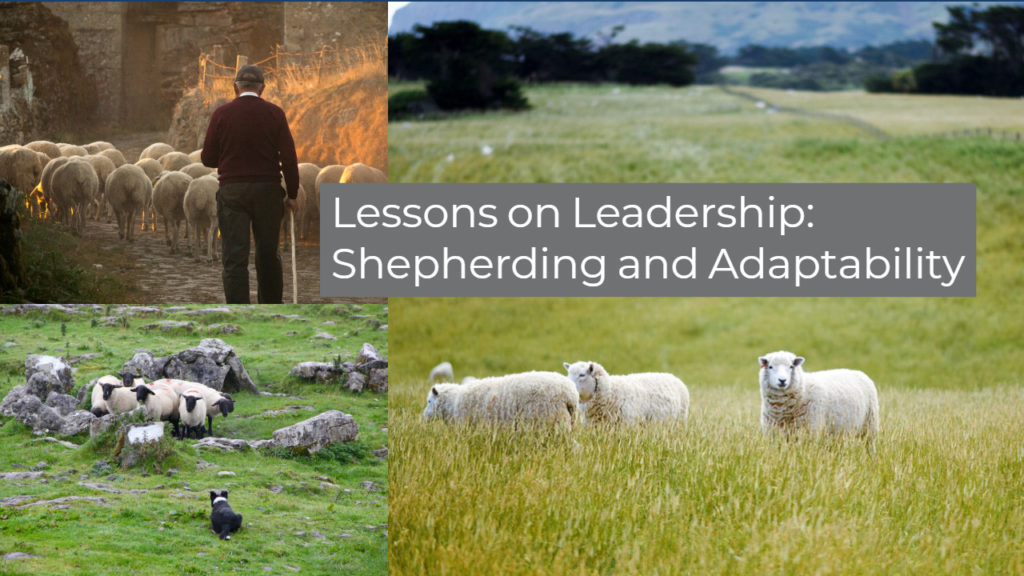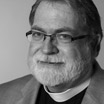“You’re a rancher, not a shepherd. If you think and act like a shepherd, you’ll never grow your church or ministry beyond the few that you care for personally…”
During the 1990s “Church growth” movement in North America, those words seemed self-evident. I began full-time, ordained ministry in the late 80’s and through the 90’s was fully immersed in the church growth movement as an evangelical-charismatic Episcopalian. I carried on that legacy through the next ten years as a rector, Anglican church planter and now as the leader of an Anglican mission society, the American Anglican Council.
But I must confess that all the models and techniques of church growth had a certain “sterility” to them that seemed more calculating than compassionate. At times I felt consumed by the need to produce results through “programs” rather than the relational imperative of making disciples (Matthew 28:16-20). Along the way, the LORD has been gracious and compassionate to me—taking me to places where I have seen the Holy Spirit bring the Bible alive in healing, deliverance ministry and multiplication of disciples. He has reminded me to not scorn small beginnings, and to treasure the “mustard seeds” of faith that first seem to offer little promise. He continues to remind me of the passion of his heart, his extravagant love for one lost sheep, one lost coin, one lost boy (Luke 15).
As leaders, sometimes we can be so consumed by the good things we are doing that we empty our souls of the very life in Christ that is the source of enduring spiritual blessing to others. I was so very grateful when my spiritual director pointed me to a resource to refresh my perspective on ministry—and calling— on the eve of a “post-GAFCON” sabbatical (from which I have just returned).

This is not just a book for professional Christian leaders. Nor is it a book only for those who lead in conventional church settings. It’s a book for every follower of Jesus Christ who finds themselves caring for others. “Believers who serve in positions of responsibility in any setting should find the content relevant,” says the author Dr. Timothy Laniak, “Pastors and politicians. Corporate executives and stay-at-home parents. Chaplains and coaches. Teachers and hospice workers. Construction supervisors and county commissioners. Virtually all of us are shepherds, responsible to God for those in our care.” Julie and I found it a wonderful daily devotional as we reflected on our lives together, our children, her work in Special Education at a nearby high-school—as well as the mission society I lead, and through it the leaders we are caring for all over the world.
Three times Jesus asked Peter “Do you love me?” at a time when Peter needed desperately to be restored in his leadership. Three times Jesus said to Peter, in effect, “If you love me, feed my sheep.” (John 21:15-19). Is there anything more loving, more significant and more spiritually restoring in our relationship with Christ than feeding His lambs—his children and new believers—and caring for Christ’s flock, the Church? Isn’t that why so many of us responded to the call to ministry in the first place?
Not all of us will enjoy neat boundaries to the flocks we shepherd. Pastors and church planters have the congregations they lead—but what about the lost sheep of the communities we serve? Bishops and archbishops will have dioceses and whole provinces to lead—but how can they shepherd such a large flock? Mission leaders will have many different communities of people they care for—staff, board members, donors, the leaders they are supporting and equipping. Parents have their own children to shepherd—but what happens when there is a crisis in the extended family, or a need to expand the boundaries to embrace a sojourner in need of family?
How do we shepherd the flock God has already given us—not the one we wish we had, nor the one we hope we will have someday, but the one he has given us NOW, the people he has entrusted to our care?
While Shepherds Watch Their Flocks addresses that question. It offers the skills and competencies necessary to truly shepherd the people in our care—such as compassion, courage, commitment, guidance and adaptive leadership.
Let me offer an example from Day 38, on adaptive leadership. From his year in the field observing, interviewing and living with Bedouin shepherds, Laniak offers the observation that adaptability becomes a way of life when shepherding becomes a way of life. The Bedouin shepherds he lived with faced constant changes in their environment that required “nimble shifting from one role to another, synergistic response to rapid changes and a willingness to move with less than a day’s notice.” (at 250). The missional challenges we face in the context or cultures in which we find ourselves require no less flexibility and “role-shifting” in leadership than those of the Bedouin leading their flocks.
Laniak then dives into the Bible to see what parallels there may be in God’s word. He notes how God revised his plan for humanity to exercise dominion over all creation following “original sin” in Genesis 3. Then God revised his plans for the Israelites who grumbled and rebelled on the very edge of entering the promised land (Numbers 14), a detour that lasted 40 years but which God used to prepare the next generation of leaders to enter that Promised Land with holy boldness. Laniak then continues with a number of examples from Israel’s history. Following God’s example of leadership in the scriptures, “The challenge is to make modifications without losing sight of the big picture.” (at 252).
Finally, the author poses in great inductive style the application question: How may God be calling you and me, as good shepherds, to alter and adapt our short-term plans while keeping to the overall “big picture” plans he has placed on our hearts? What does this “holy” flexibility, agility, adaptability and opportunism mean for you and me in our leadership of the people he has placed in our care?
I thought about the descending darkness of secularism and paganism all over the world. I thought about the deepening crisis of false teaching and lack of accountability within the Anglican Communion, even as we enjoy the afterglow of Gafcon. These challenges face any follower of Jesus Christ who wants to proclaim Christ faithfully to the nations. The conflicts within our own local congregations, dioceses and provinces that too often divide and distract us from fulfilling that mission. The ever-present stress in finding the resources for Gospel mission.
Here’s what the Good Shepherd reminded me of:
- Never lose sight of the big picture. We know Christ’s Great Commission to make disciples of all nations (Matthew 28:16-20). We also know that in the deepest torture and anguish he suffered on the cross, he never lost sight of that picture as he said to the dying thief next to him “Today, you will be with me in paradise.” (Luke 23:43) In that same spirit, Paul never despaired of what the Church may be now, and held onto the picture of what it is ordained to be as we grow “in all things into him who is the Head, that is, Christ.” (Eph. 4:11-16)
- Always be open to God’s redirection. As faithful shepherds, let’s not let our strong sense of what direction we must take, and when we need to move, and what we must do keep us from appreciating alternative ways forward as God leads. We must always hope, pray and plan for the best. But when the best doesn’t materialize, have a contingency plan ready for the sake of realizing God’s “bigger picture.”
- Pace yourself by God’s speed. Jesus had an exquisite sense of God’s timing. In the face of faithlessness, family and fear he rejected the pressure to go to the Feast of Tabernacles prematurely. (“Therefore Jesus told them, ‘the right time for me has not yet come; for you any time is right…’” (John 7: (1-6) 7ff). Let’s not pull the trigger on our contingency planning out of fear or faithlessness. Let’s move at the same speed Jesus did, constantly listening for God’s direction and timing over the din of the world’s.
In the weeks to come, I’ll have a lot more to say about GAFCON, the Global South, Canterbury, the crisis of false teaching and failure of discipline in the Communion, how to “enhance ecclesial responsibility” in the way we organize ourselves as Great Commission Anglicans here and across the globe… and above all, how we can be faithful to Christ’s Great Commission and be the Church (Eph. 4:11-16) here in North America.
In the meantime, if you don’t have it already, I hope you will read While Shepherds Watch Their Flocks. You will be blessed!
The Rev. Canon Phil Ashey is President & CEO of the American Anglican Council.



